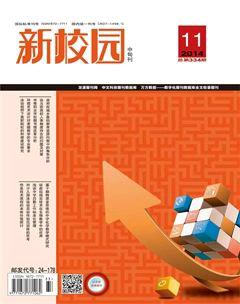医学英语中常见的被动语态译法
曹琳
摘 要:医学英语中经常可以见到被动语态的句子。在翻译成汉语时可译成汉语的主动句,分别用原文中的主语做主语或宾语;也可译成带表语的主动句或译成汉语的被动句;此外,我们也常用主动句表示被动意义。
关键词:医学英语;被动语态;翻译方法;被动句
随着国际学术交流的日益广泛,医学英语已经受到越来越多的重视。了解医学英语在词汇、语法结构上的特点,掌握一些医学英语的翻译技巧非常必要。医学本身科目繁多,且分科极细,各分科的词汇专业性极强,对医学英语的翻译相应要求很高。翻译好一篇医学文章,首先应了解医学英语语言的特点。医学英语既有公共英语的词汇及语法现象,也有其独特的表达及用法,这就要求译者具备扎实的语言基础和医学专业基础知识。译者在熟练掌握公共英语的词汇及语法现象的基础上,应尽可能多地了解并掌握医学术语。医学英语中,我们经常可以见到被动语态的句子。被动语态的运用可以增强论文的客观性,避免作者的主观性。例如:
Marijuana (Cannabis Sativa) is one of mans oldest and most widely used drugs. It has been consumed in various ways as long as medical history has been recorded and is currently used throughout the world by hundreds of millions of people. A fairly consistent picture of short-term effects on users is presented in many publications.
译文:大麻是使用最广泛、时间最长的一种毒品。自有医学史以来,就有使用大麻的记载,并经全世界数以万计的人使用。许多出版物均报道大麻对毒品使用者常出现短期效应。
许多学生和医院的朋友反映这类句子翻译成汉语时存在困难。经过笔者多年的细心研究,发现医学英语被动语态的翻译可归纳为以下几点:
一、译成汉语的主动句
医学英语被动结构的句子,译成汉语的主动句,可以有下列几种情况。
1.原文中的主语仍做主语
If it is duodenal ulcer, the pain will be relieved by eating.
如果是十二指肠溃疡的话,进食后疼痛就会消失。
Urine is formed in the kidneys.
尿在肾中形成。
2.原文中的主语在译文中做宾语
The patient remained conscious while he was being operated on.
在给病人做手术时,其一切都是清醒的。
The patient was asked to have an X-ray taken.
(医生)要病人照X光。
3.译成带表语的主动句
There is bacitracin, which was discovered by two scientists at Columbia Universitys College of physicians and surgeons.
杆菌肽是哥伦比亚大学医学院的两位科学家发现的。
Mould, which was found accidentally by Dr. Alexander Fleming, could kill some germs.
霉菌能杀死某些细菌,它是亚历山大·弗莱明偶然发现的。
二、译成汉语的被动句
汉语也有用被动形式来表达的情况,这一类句子都是着重强调被动的动作,有时说出了动作的发出者,有时不说。
1.“被”“给”
Acidity of the mouth is looked upon as an important cause of tooth decay.
口腔中的酸度被看作是龋齿的一个重要原因。
When this kind of antibiotic is used, it should be given in large doses.
在使用这种抗菌素时,应给予大剂量。
The system of blood, blood vessels, and the heart is termed the circulatory system.
血液系统,血管以及心脏被称为循环系统。
2.“(遭)受……”
The kidneys are protected by the ribs and their cartilages.
肾脏受到肋骨及其它软骨的保护。
Organ transplants are limited by rejection problems.
器官移植受到排异问题的限制。
3.“为(被)……所……”
Helpful bacteria are made use of by man.
有益的细菌为人类所利用。
His theory on anatomy and surgery has been proved by the medical world.
他的解剖学、外科学的理论已被医学界所证实。
The new methods have been adopted by the other hospitals.
这些新疗法已被其它医院所采用。
三、有人称句,无人称句的翻译
有一类以“it”为形式主语的句子,在译文中需改成主动形式,有时不加主语,称为无人称句;有时则加上不确定的主语,如“人们”“大家”“我们”等,称为有人称句。
1.无人称句
It should be said that the situation is basically sound.
应该说,情况基本上是健康的。
It has been proved that the bodys response to a stimulus is controlled by the brain and the spinal cord.
已证明,人体对刺激的反应受大脑和脊髓的控制。
2.有人称句
It is known that a sponge or a bed bath is usually given to a patient confined to bed.
大家知道,海绵擦浴通常用于卧床病人。
It was declared that the new medicine was effective to cancer.
人们宣称这种药对治疗癌症有效。
四、被动语态译成含有“把”,“使”,“由”的汉语句子
The blood of poisons is cleaned by the artificial kidney.
人工肾把血液中的有毒物质清除掉。
His pain has been completely relieved by acupuncture.
针灸使他的疼痛完全消失。
The human skeleton is made up of 206 bones.
人的骨骼由206块骨头组成。
五、带有情态动词的被动结构,多译成汉语的主动句
A skin test must be made before injection.
注射前必须先做皮试。
The medical instruments must be handled with great care.
这些医疗器械的操作要非常小心。
六、主动句表示被动意义
1.在及物动词need,want,require等词之后用动名词的主动形式表示被动意义
The case requires consulting with the other doctors.
此病例需要与其他医生会诊。
The instruments want sterilizing.
这些器械要消毒了。
2.某些形容词之后,用动词不定式的主动形式表示被动意义
Germs are too small to see without a microscope.
细菌太小,不用显微镜就看不见。
3.在形容词worth之后用动名词的主动形式表示被动意义
According to the age of the patient, the operation is worth performing.
从病人的年龄上看,手术值得一做。
4.有些介词短语表示被动意义
He has been kept under observation for a period of time.
他被留下观察一段时间。
Some patients are having an intravenous drip; some are under medical examination.
有些病人在做静脉滴注,有的在接受治疗检查。
5.get+过去分词,表示被动意义
He got wounded in the battle.
他在战斗中受伤。
众所周知,任何医学文献决不是简单的单词与短句的堆积,更不是生搬硬套,而是按一定的规律与习惯组织起来的文章。因此,掌握必要的专业词汇是前提。在掌握一定英文词汇的基础上,熟悉医学文献的表述方式和基本内容,尽可能采用专业术语表达意思,这样才能做好医学文章的英语翻译。
参考文献:
[1]张道真.实用英语语法[M].北京:外语教学与研究出版社,2002.
[2]蔡郁,汪媛.医学英语综合教程[M].南京:南京大学出版社,2010.

